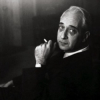Lionel Trilling

Lionel Trilling
Lionel Mordecai Trillingwas an American literary critic, short story writer, essayist, and teacher. He was one of the leading U.S. critics of the twentieth century who traced the contemporary cultural, social, and political implications of literature. With his wife Diana Trilling, whom he married in 1929, he was a member of the New York Intellectuals and contributor to the Partisan Review...
NationalityAmerican
ProfessionCritic
Date of Birth4 July 1905
CountryUnited States of America
This desire to fashion, to shape, a self and a life has all but gone from a contemporary culture whose emphasis, paradoxically enough, is so much on self.
Somewhere in the child, somewhere in the adult, there is a hard, irreducible, stubborn core of biological urgency, and biological necessity , and biological reason that culture cannot reach and that reserves the right, which sooner or later it will exercise, to judge the culture and resist and revise it.
Everything which the economist takes from you in the way of life and humanity, he restores to you in the form of money and wealth.
Economic man and the Calvinist Christian sing to each other like voices in a fugue. The Calvinist stands alone before an almost merciless God ; no human agency can help him; his church is a means to political and social organization rather than a bridge to deity , for no priest can have greater knowledge of the divine way than he himself; no friend can console him in fact , he should distrust all men; in the same fashion, Economic Man faces a merciless world alone and unaided, his hand against every other's.
We have all in some degree become anarchistic.
Disgust is expressed by violence, and it is to be noted of our intellectual temper that violence is a quality which is felt to have a peculiarly intellectual sanction. Our preference, even as articulated by those who are most mild in their persons, is increasingly for the absolute and extreme, of which we feel violence to be the true sign. The gentlest of us will know that the tigers of wrath are to be preferred to the horses of instruction and will consider it intellectual cowardice to take into account what happens to those who ride tigers.
Reasons for not keeping a notebook: 1) the ambiguity of the reader--it is never quite oneself. 2) I usually hate the sight of my handwriting--it lives too much and I dislike its life--I mean by "lives," of course, betrays too much!
Unless we insist that politics is imagination and mind, we will learn that imagination and mind are politics, and of a kind we will not like.
We are all ill; but even a universal sickness implies an idea of health.
We who are liberal and progressive know that the poor are our equals in every sense except that of being equal to us.
The function of literature, through all its mutations, has been to make us aware of the particularity of selves, and the high authority of the self in its quarrel with its society and its culture. Literature is in that sense subversive.
Literature is the human activity that make the fullest and most precise account of variousness, possibility, complexity, and difficulty.
What marks the artist is his power to shape the material of pain we all have.
Any historian of the literature of the modern age will take virtually for granted the adversary intention, the actually subversive intention, that characterizes modern writing - he will perceive its clear purpose of detaching the reader from the habits of thought and feeling that the larger culture imposes, of giving him a ground and a vantage point from which to judge and condemn, and perhaps revise, the culture that produces him.